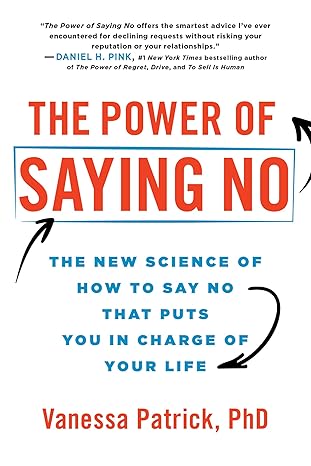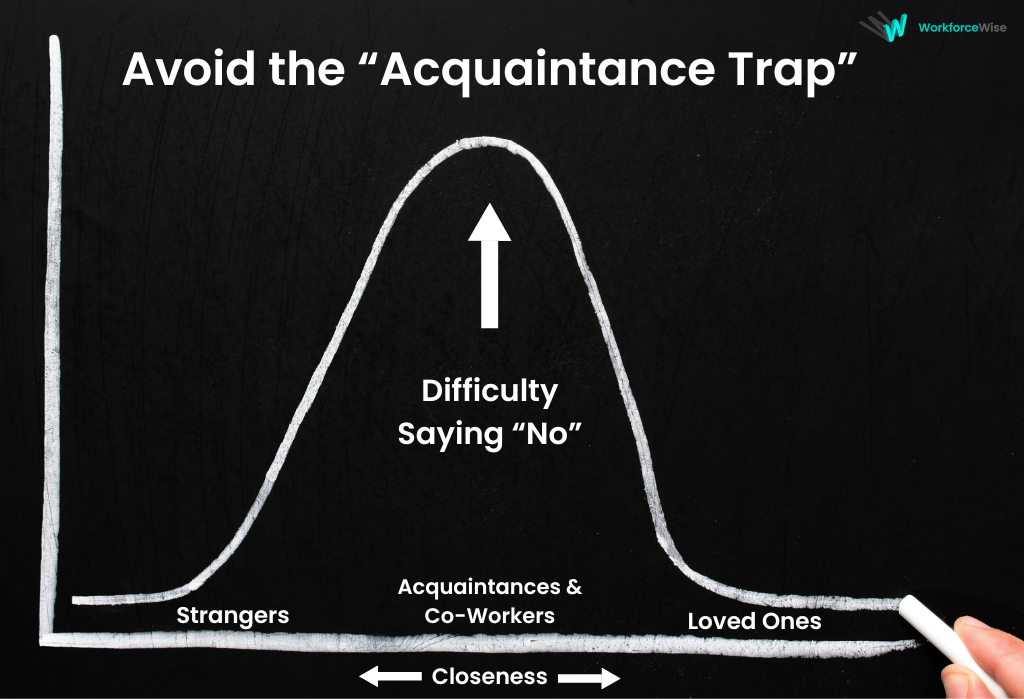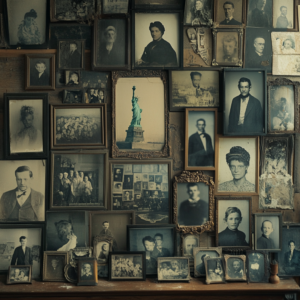
Some of the insights in this article come from Dr. Vanessa Patrick’s research and cognitive behavioral therapy (CBT) in her bestseller:
The Power of Saying No
Click here for free audiobook with trial.
Balancing Expectations and Personal Boundaries
Whether at work, in social situations, or within our personal relationships, there are moments when we feel pressured to say yes, even when we want to say no. The challenge of navigating these demands effectively is critical, not only for preserving our well-being but also for staying true to ourselves. This article explores the psychological, social, and emotional aspects of handling requests and offers practical strategies for empowering ourselves to make decisions that align with our values.
The Elephant in the Room: Pressure to Conform
One of the most well-known stories of pressure comes from George Orwell’s account of a British officer in Burma who felt compelled to shoot an elephant to appease a crowd of villagers. Though the officer had no desire to shoot the animal, he ultimately did because he felt the weight of the villagers’ expectations. He reflects, “Suddenly, I realized I should have to shoot the elephant after all. The people expected it of me, and I had got to do it.”
This narrative encapsulates a universal experience: the pressure to conform to what others expect of us, even when it goes against our own desires or values. Whether it’s societal norms or personal expectations from those around us, the pressure to meet others’ demands can lead us to act in ways we later regret.
The Dilemma of Saying Yes When We Want to Say No
A common challenge many of us face is the difficulty of saying no when we want to, particularly when we feel that our refusal might harm relationships or damage our reputation. Vanessa Patrick, a young advertising professional in India, recounts a moment when she was instructed to stay late at work, forcing her to miss her own birthday party. She says, “My plans for the evening were shattered with that instruction,” reflecting how a simple request can derail personal plans. Yet, she felt compelled to comply out of a sense of duty and fear of repercussions in her career.
This phenomenon of saying yes, despite internal reluctance, is often driven by a desire to avoid conflict, maintain harmony, or ensure that we are seen in a positive light. However, consistently saying yes when we mean no can lead to resentment, exhaustion, and a loss of personal autonomy.

The Acquaintance Trap: Difficulty Saying No to Casual Connections
Interestingly, research shows that it’s not always our closest friends or family members who put the most pressure on us. Often, it is the acquaintances in our lives—coworkers, neighbors, or casual social connections—that we feel the hardest to refuse. As Vanessa Patrick notes, “The majority of people in our neighborhoods, in our communities, at our workplaces, could be categorized as acquaintances.”
This creates a unique challenge: we are more likely to agree to requests from acquaintances because we want to maintain cordial relationships and avoid awkwardness. Patrick illustrates this with a story about her daughter, who gave up her lunch to another girl at a party. Even though her daughter didn’t want to, she felt obligated because of the social dynamics at play.
Reputation Concerns and Public Pressure
One of the driving forces behind our tendency to comply with demands is the desire to protect our reputation. We all want to be seen as warm, competent, and capable, and we fear that saying no might tarnish those qualities in the eyes of others. This is particularly true when we are put on the spot, as in the “stadium proposal” scenario—an example where public pressure makes it exceedingly difficult to refuse. Being publicly asked for something, like in a stadium marriage proposal, forces the individual into a corner, where saying no can seem almost impossible due to the fear of public judgment.
The Psychological Immune System: Rationalizing Compliance
When we say yes to something we’d rather decline, our mind often steps in to justify the decision. This rationalization is part of what psychologists refer to as the “psychological immune system.” This mental mechanism helps us cope with the discomfort of doing something we don’t want to by creating narratives that make our compliance more palatable.
As Patrick explains, “When we come up with excuses and when we invoke this psychological immune system and our coping mechanisms kick in, we are less likely to learn from our mistakes.” By telling ourselves that we had no other choice, or that it wasn’t a big deal, we rob ourselves of the opportunity to reflect on our decision and learn how to assert our boundaries in the future.
Empowered Refusals: Developing Personal Policies
To effectively manage the demands from others, we must learn to say no with conviction. One powerful strategy is to establish personal policies that guide our decision-making, ensuring that we are less susceptible to making choices in the heat of the moment. As one saying goes, “If it is not a hell yes, it is a hell no.” This simple principle can help clarify which requests align with our values and priorities and which do not.
In addition to personal policies, techniques like “strategic postponement” and framing refusals using “I don’t” instead of “I can’t” can strengthen our ability to say no without damaging relationships. For example, saying “I don’t work late on Fridays” carries more weight and finality than “I can’t work late on Friday.” The former signals a personal rule, whereas the latter suggests a temporary barrier.
Finally, it’s crucial to distinguish between everyday requests and what might be termed “hero’s journey asks.” These are the requests that, while difficult, resonate with our core values and offer a sense of purpose or fulfillment. Learning to recognize and prioritize these meaningful requests allows us to conserve our time and energy for the things that truly matter.
The Consequences of Saying Yes vs. Saying No
Saying yes and saying no both have significant impacts, but they affect different areas of our lives.
- Impact on Relationships: Saying yes to everything can sometimes damage relationships if it leads to frustration or resentment. Conversely, saying no in a respectful, thoughtful manner can preserve relationships by setting clear boundaries.
- Impact on Reputation: While we may think that saying yes protects our reputation, overcommitting can lead to burnout and underperformance. Saying no, on the other hand, can protect our reputation by allowing us to focus on tasks where we can excel.
- Emotional Impact: Saying yes too often can lead to unhappiness and a sense of being overwhelmed. Saying no, though initially uncomfortable, often results in feelings of empowerment and confidence, as we take control of our time and priorities.
As Annie Dillard wisely observed, “How we spend our days is, of course, how we spend our lives.” By learning to say no effectively and navigating the demands of others with intention, we can take charge of our lives and ensure that our time is spent in alignment with our deepest values and priorities.





